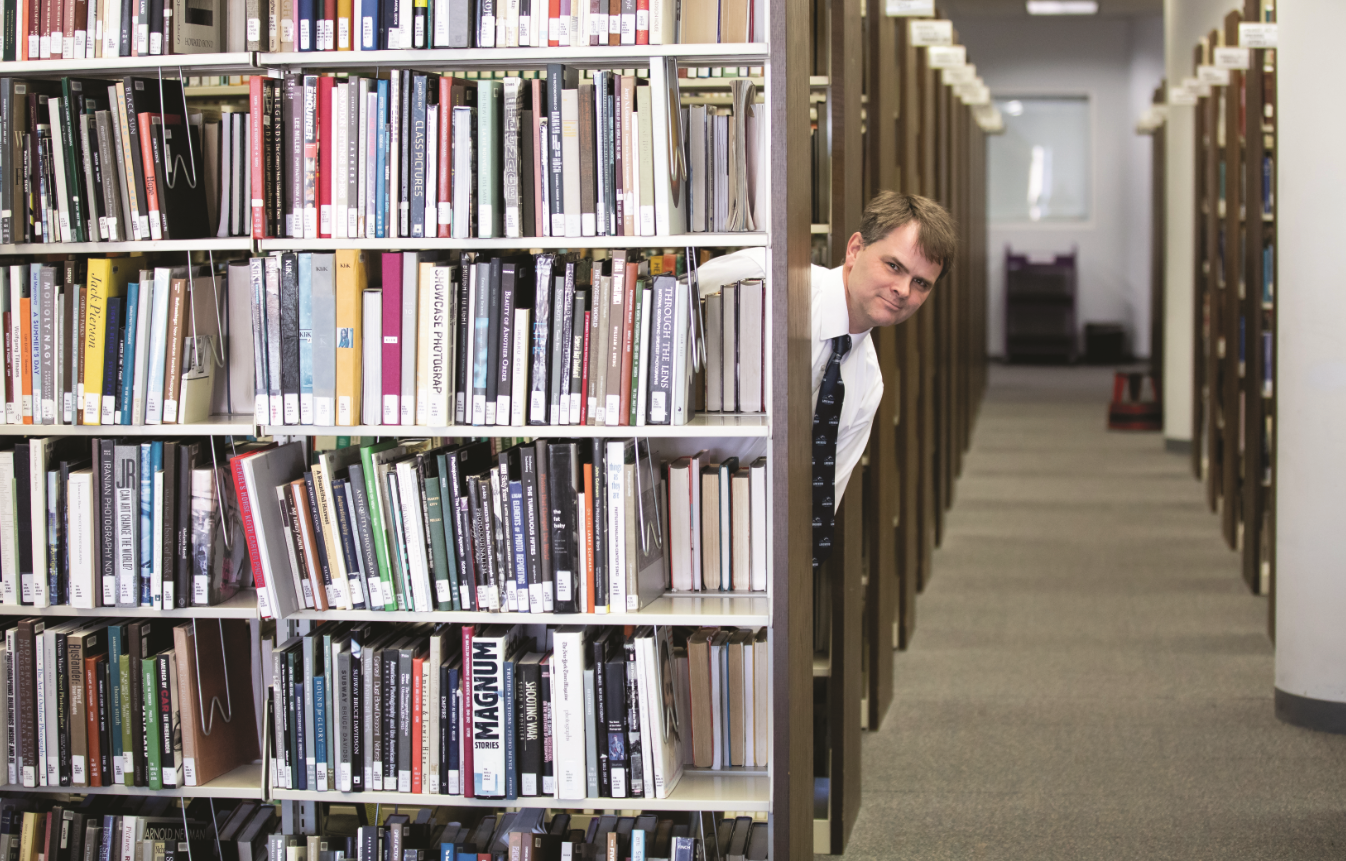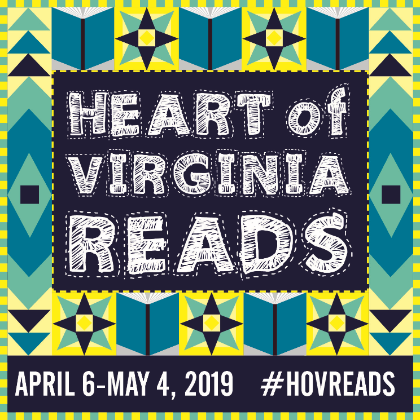

We all know someone like Brent Roberts, but we don’t always expect a quirky, colorful personality like his from a librarian.
He is well-known on campus for turning conversations and meetings into fits of laughter. (He’ll sing his favorite Hamilton song— “Dear Theodosia, ” if you’re wondering—at the drop of a hat.) He’s also known to use his disarming humor to find allies for the constant stream of new ideas he and his staff have for making Greenwood Library a more integral part of the community.
One of those ideas was applying for a National Endowment for the Arts Big Read grant, which aims to build a better community around reading one book. He’s also deeply involved in the annual Virginia Children’s Book Festival, which brings authors, illustrators and thousands of children to campus. And he’s ushered in changes to make the library more accessible and useful for students.
We sat down with Dean Roberts to talk about the NEA Big Read grant and more.
Hello, Dean Roberts.
Hello, sir. It’s a pleasure to be here on the Merv Griffin Show!
Let’s first do a typical question all librarians get: What books are you currently reading?
I’m reading The English Girl by Daniel Silva on my Kindle—see, even librarians embrace technology. I’ve just finished Where the Water Goes by David Owen (because I’m involved in the Colorado River Brock Experience), That We May Be One by Tom Christofferson and a book called Red Joan by Jennie Rooney.
What’s going on with the Big Read grant that everyone is talking about?
It’s a huge deal. We got $15,000 from the National Endowment for the Arts to develop communitywide programming and discussion around the book Burning Bright by Ron Rash. The book is a rich tapestry of Appalachian history, culture, poetry and music all wrapped up in one collection of short stories.
What kind of programming is on tap, and what will it do for the community?
I hope it brings the community together to talk about current issues in our region. That’s really the purpose of the Big Read, using the book as a springboard. The reason we chose Burning Bright is that it deals with a lot of the challenges that Southside Virginia faces. The opioid crisis of the present, the Civil War of the past, poverty, alcoholism and drug abuse, arson—they are all there.
We’ll have a great kickoff on April 6 at the farmers’ market in downtown Farmville with some introductory discussion, demonstrations, live music, food trucks and distributions of the book. Then there will be more discussions throughout the month at various locations in town, dramatic readings, musical events and even a storyteller telling Jack tales at the public library. [Jack tales typically involve a young hero named Jack who must overcome the challenges of harsh mountain life using intelligence, bravery and, occasionally, trickery.]
'I hope it brings the community together to talk about current issues in our region. That’s really the purpose of the Big Read... .'
Brent Roberts, Greenwood Library Dean
You say often that you want Greenwood Library to be more than just a campus building.
What we are trying to do with the Big Read grant exemplifies what we are trying to do with the campus and the community in general. We are the most promiscuous library you have ever seen. We’ll partner with anybody if it brings people together and raises the cultural life of the community—for example, the Longwood Center for Community Music, Virginia Children’s Book Festival, LCVA and the Department of English and Modern Languages. We are preparing true citizen leaders, armed with compassion, confidence and empathy to go forth into the world.
That last sentence would have been better with a third “c” word.
Communism? Coriander?
How are librarians involved in the classroom?
Librarians have played a key role from the very early stages in building our new Civitae core curriculum. Information literacy is a central aspect in both the Foundations level—most English 165 classes will have exposure to a librarian—but also in the Perspectives level. As a result, there are opportunities at every level in Civitae for students to interact with librarians and develop greater facility with navigating the information overload.
Tell me about information literacy.
Well, it’s finding, accessing, evaluating and deploying information in a professional way. This goes back to President Reveley’s discussion about the habits of democracy, so that people can come together and talk through their issues. I would add that one of the habits of democracy is information literacy. It doesn’t do people any good to come together and talk unless they are well-informed and well- prepared with solid source materials.
You’re a well-known history buff. Now that you’ve been in Virginia for three years, are there any sites still on the must-see list?
I haven’t been to a lot of the Civil War battlefields. I’d like to visit Chancellorsville and Manassas particularly.
How many steps do you have to take when you walk into your house before you reach a bookshelf?
Well, there are books right inside the entryway, so about two.
What’s your favorite part of the day here?
Generally it’s late afternoon toward the end of the semester. I can step out of my office, and the atrium is packed with people. Then I walk upstairs to group study, and every one of those tables is packed with young scholars. That’s what really warms my heart!

